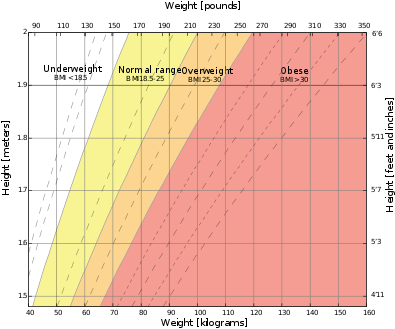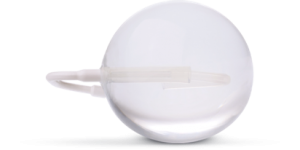Did you sleep well last night? If not, you might be one of the estimated 22 million individuals in the United States suffering from sleep apnea. And chances are that you might also be one of the 41.9% of individuals suffering from obesity, as it affects a significant percentage of people with sleep apnea.
Indeed, the relationship between sleep apnea and obesity is well-documented and has been the object of many studies in recent years. Several diseases, like diabetes and hypertension, are linked to both Obstructive Sleep Apnea (OSA) and obesity. Keep reading to find out how obesity and sleep apnea influence each other, and how curing these conditions can help improve your quality of life.
What Is Sleep Apnea? Is it related to overweight?
Sleep apnea is a health issue that creates an absolute blockage of air at the nose and mouth for about a minute during sleep. As the name implies, sleep apnea is the interruption of your breathing when you’re asleep. While one might perceive it as inconsequential, it’s not only about snoring and waking up in the middle of the night.
The complication of this health issue lies in the fact that many people are unconscious of its consequences. Most people are unaware they have sleep apnea, which increases the risk and leads to misinterpretation of associated symptoms. The symptoms associated with sleep apnea might not be the easiest correlation to make.
Some common symptoms include loud snoring, daytime sleepiness, and morning headaches. Waking up at night feeling like you’re choking because of insufficient oxygen is also common among patients suffering from sleep apnea.
Based on the evidence shown by the Sleep Foundation (1), OSA (Obstructive Sleep Apnea) is seven times more common in individuals who are obese.
How Excess Weight Causes Sleep Apnea
The BMI chart below shows how different obesity classes correlate with sleep apnea :
- Underweight (BMI less than 18.5) and Normal weight (BMI 18.5 to 24.9) categories generally correlate with a lower risk of sleep apnea.
- Overweight (BMI 25 to 29.9) individuals have a higher risk compared to those in the Normal weight category.
- Obesity (BMI 30 and above) significantly increases the risk of developing sleep apnea due to factors like increased neck circumference and the likelihood of fat deposits around the upper airway.
Each additional unit of BMI heightens the risk of developing sleep apnea by 14%, while a 10% increase in weight multiplies the odds of moderate to severe obstructive sleep apnea by six. Individuals classified as obese are seven times more likely to develop sleep apnea than those with normal BMI. If you want to know what BMI class you fall into, you can use our intuitive tool to calculate BMI. So how exactly does excess weight cause sleep apnea?
Obesity's Impact on Airway Obstruction
One of the most direct impacts of obesity on breathing problems is the obstruction of airflow due to excess fat around the neck, resulting in reduced oxygen intake and requiring significantly more effort compared to someone with lower body fat.
Breathing challenges can also arise from excess fat accumulation around your abdomen and chest, inhibiting your lungs from fully expanding to inhale the maximum amount of oxygen for optimal health. Consequently, individuals may experience shortness of breath and other respiratory difficulties. It’s important to address these issues to mitigate the risks associated with obesity-related airway obstruction, including sleep deprivation.
Hormonal and Inflammatory Influences on Sleep Apnea
Central obesity, also known as visceral fat, refers to the belly fat found deep within your abdominal cavity, that surrounds important organs like the liver, pancreas, and intestines, and can significantly impact hormone production. These hormones include adiponectin and leptin, which play crucial roles in regulating appetite, metabolism, and insulin sensitivity.
Leptin helps us sleep deeply by working against a part of our brain called the hypothalamus that makes us stay awake. When someone has central obesity, these hormones can get out of balance, which can cause problems with how the body processes food and insulin. This can lead to conditions like type 2 diabetes, heart disease, and certain cancers.
How does sleep apnea cause weight gain ?
How does sleep apnea influence weight gain? Let’s explore this question in depth to gain a better understanding of the relationship between sleep apnea and weight gain. As mentioned earlier, leptin plays a crucial role in regulating appetite. Sleep apnea can lead to a decrease in leptin production, causing the brain to miss signals indicating that the body is full. This can result in increased food intake and contribute to weight gain.
Health Risks of Sleep Apnea and Excess Weight
Sleep apnea poses numerous health risks, ranging from cardiovascular problems to neurological issues. Most of these risks are associated with both sleep apnea and excessive weight. If you experience some of these symptoms, we recommend you speak to your doctor and begin to take steps towards a healthier lifestyle.
Cardiovascular problems, such as hypertension, heart disease, and stroke, can lead to symptoms like chest pain or discomfort, upper back or neck pain, indigestion, heartburn, nausea or vomiting, extreme fatigue, upper body discomfort, dizziness, and shortness of breath.
Metabolic disorders, including Type 2 diabetes and insulin resistance, are characterized by increased blood pressure, high blood sugar, excess body fat around the waist, and abnormal cholesterol or triglyceride levels.
Neurological issues may manifest as cognitive impairment and daytime sleepiness, along with symptoms like paralysis, muscle weakness, poor coordination, loss of sensation, seizures, confusion, pain, and altered levels of consciousness.
Concerns related to mental health such as depression and anxiety, can result in persistent feelings of sadness or anxiety, lack of interest in previously enjoyable activities, irritability, frustration, restlessness, difficulty falling or staying asleep, and changes in sleep patterns like waking up too early or sleeping too much.
Respiratory complications, such as asthma and respiratory infections, may present with symptoms like fever, cough, and shortness of breath.
Can losing weight cure sleep apnea ?
Yes, losing weight can significantly improve sleep apnea. Research from the Sleep Foundation (2) suggests that a weight loss of just 10-15% can reduce the severity of obstructive sleep apnea by 50% in moderately obese patients. While sleep apnea cannot be completely cured, taking steps to reduce weight can lead to notable improvements in sleep health. Embarking on a weight loss journey not only promotes better sleep but also contributes to overall mental and physical well-being.
What are the different treatment options for sleep apnea ?
Below are some of the most common treatment options for sleep apnea – some of these options are complementary and don’t necessarily exclude the others:
Among various surgical treatments for sleep apnea, UPPP (Upper Airway Surgery) is the most commonly chosen surgery for OSA. Doctors performing this surgery use tiny surgical tools to remove obstructive tissues from the airway, expanding its diameter and consequently enhancing airflow while reducing instances of apnea. If this procedure isn’t suitable for you, you may consider exploring surgeries involving the jaw, tongue, nose, or nerve stimulation as alternative options.
Losing weight can significantly improve sleep apnea symptoms, making it one of the most effective solutions for managing this condition. However, it’s important to note that certain weight loss methods, such as the Spatz adjustable gastric balloon, may require changes to your sleeping position. Initially, after the gastric balloon procedure, it’s recommended to sleep in an upright position. This adjustment period may be necessary before experiencing the full benefits of improved sleep with the gastric balloon.
An alternative to using CPAP is lifestyle adjustments. Furthermore, beyond weight loss, managing dietary habits, engaging in regular physical activity, and quitting smoking are crucial steps in enhancing sleep quality and effectively managing sleep apnea.
APAP and CPAP are both types of PAP therapy. CPAP (Continuous Positive Airway Pressure) , also known as continuous positive airway pressure, is a device that operates by producing a continuous flow of pressurized air through a tube into a mask placed over your nose or mouth. This air pressure assists in maintaining open airways during sleep, preventing interruptions in breathing and minimizing the frequency of awakenings to resume breathing. APAP (automatic positive airway pressure) is similar to CPAP, but the key distinction lies in the method of air delivery. With CPAP, air is released at a fixed rate, whereas with APAP, the air delivery is personalized and adjusts based on the sleeper’s needs.
There are two major types of oral devices: tongue-retaining devices (TRD) and the more common mandibular advancement splints (MAS). The MAS reposition the tongue and bring the mandible forward, thus increasing the overall volume of the airway by tightening the soft tissue and muscles of the upper airway.
Does going on CPAP make you gain weight?
While testimonies suggest a higher likelihood of rapid weight increase with CPAP use, there remains ongoing debate within the scientific community regarding its potential effects on body mass. One possible explanation for this phenomenon relates to the improved sleep quality associated with CPAP therapy. By effectively maintaining an open airway during sleep, CPAP reduces interruptions in breathing, leading to better overall sleep patterns.
Consequently, individuals may experience reduced daytime fatigue and increased energy levels, potentially resulting in higher levels of physical activity and increased calorie consumption. Despite these considerations, the decision to undergo CPAP therapy should be made in consultation with a healthcare professional, taking into account individual health needs and circumstances.
Maintaining a moderate weight with sleep apnea
A clinical trial stated that early weight loss may cure mild sleep apnea. Other research states that weight loss can often reduce the severity of a person’s sleep apnea, but it does not cure the condition by itself. In any case, losing weight and maintaining good health can significantly improve your sleep apnea. By shedding extra pounds, you can alleviate airway obstructions, thereby reducing the severity of associated symptoms.



